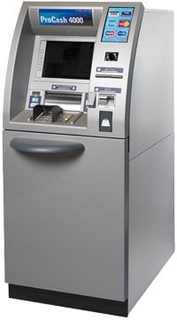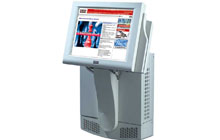The quantity of e-mailed advertising pitches for different opportunities is about to increase dramatically
Published:
9 July 2002 y., Tuesday
The quantity of e-mailed advertising pitches for different opportunities is about to increase dramatically, according to research by Bob West, an anti-spam activist.
E-mail addresses are the currency in a financial shell game that involves rapidly moving consumer contact information from database to database while concealing where and how the data was collected, according to West's research, which he has documented in a map that painstakingly details all the dark and twisted paths that your e-mail address has been traveling.
Spammers harvest e-mail addresses from websites and public posts on Internet newsgroups and bulletin boards and then sell the addresses to other spammers, or to unscrupulous marketing companies who pay a bounty fee per submitted name. These marketing lists may eventually be sold to legitimate companies who often believe they are purchasing a list of eager consumers' addresses.
One end result of all this activity is, rather obviously, more spam showing up in already jammed inboxes. West said his research indicates that unless consumers complain publicly and loudly about the promiscuous passing around of their e-mail addresses, spam will make the mailboxes of most Internet users virtually unusable within the next six to nine months ... "a year if we're lucky."
Other anti-spam activists agreed that spam is proliferating, but pointed out that West's "Spamdemic Map" doesn't indicate any concepts that aren't already widely understood.
Šaltinis:
wired.com
Copying, publishing, announcing any information from the News.lt portal without written permission of News.lt editorial office is prohibited.
The most popular articles
Software company announced new structure_ of it_s business.
more »
 60 Percent Believe IT Can Transform How Their Companies Manage Energy Consumption
more »
60 Percent Believe IT Can Transform How Their Companies Manage Energy Consumption
more »
 Aladdin Knowledge Systems Ltd. announced that its shareholders approved the definitive merger agreement, providing for the acquisition of the Company by a Vector Capital affiliate.
more »
Aladdin Knowledge Systems Ltd. announced that its shareholders approved the definitive merger agreement, providing for the acquisition of the Company by a Vector Capital affiliate.
more »
 Fiserv Inc. says a recent market study shows that banks and credit unions view mobile-deposit capture as a key consumer benefit, and they're looking to it as an extension of remote deposit capture.
more »
Fiserv Inc. says a recent market study shows that banks and credit unions view mobile-deposit capture as a key consumer benefit, and they're looking to it as an extension of remote deposit capture.
more »
 Teachers take educational website in new direction.
more »
Teachers take educational website in new direction.
more »
 Today at Mobile World Congress 2009, Microsoft Corp. CEO Steve Ballmer along with key mobile partners, HTC, LG and Orange, unveiled new Windows® phones featuring new user-friendly software and services.
more »
Today at Mobile World Congress 2009, Microsoft Corp. CEO Steve Ballmer along with key mobile partners, HTC, LG and Orange, unveiled new Windows® phones featuring new user-friendly software and services.
more »
 New facility to benefit customer operations in Asia Pacific.
more »
New facility to benefit customer operations in Asia Pacific.
more »
 Microsoft has been awarded its 10,000th U.S. patent for a unique way of interacting with surface computers.
more »
Microsoft has been awarded its 10,000th U.S. patent for a unique way of interacting with surface computers.
more »
 Convenience, rather than security, will be the driving force behind the U.K. adoption of new payment methods, according to an independent survey of 1,000 British consumers.
more »
Convenience, rather than security, will be the driving force behind the U.K. adoption of new payment methods, according to an independent survey of 1,000 British consumers.
more »
 In the first handelsjournal competition for the best products for retail businesses, Wincor Nixdorf’s BEETLE /NetX nd BEETLE /iSCAN systems were awarded gold and silver in the categories environmental friendliness and customer satisfaction.
more »
In the first handelsjournal competition for the best products for retail businesses, Wincor Nixdorf’s BEETLE /NetX nd BEETLE /iSCAN systems were awarded gold and silver in the categories environmental friendliness and customer satisfaction.
more »
 Seventeen leading websites have agreed to put in place safeguards to protect young people from unwittingly risking their privacy and safety.
more »
Seventeen leading websites have agreed to put in place safeguards to protect young people from unwittingly risking their privacy and safety.
more »